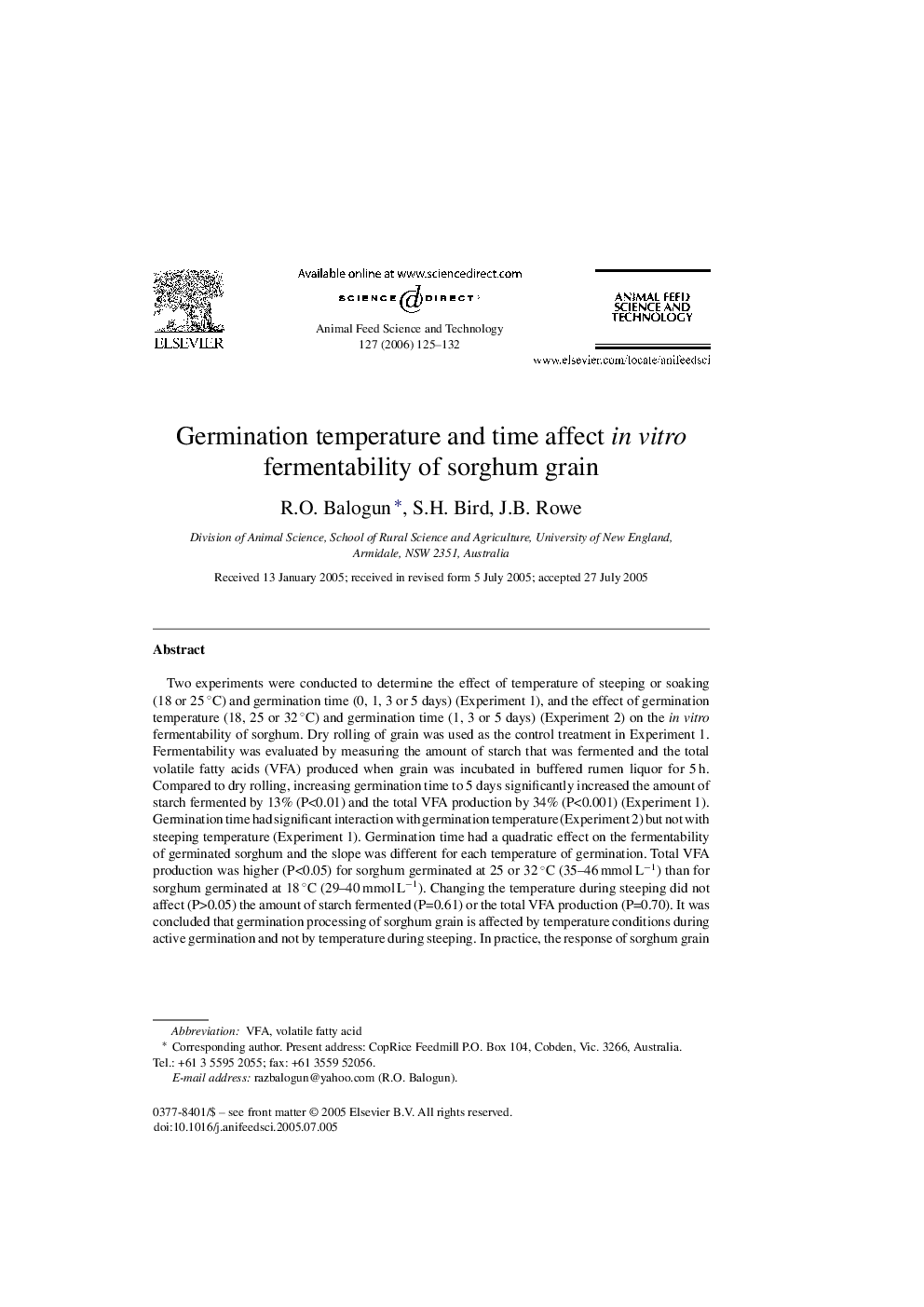| Article ID | Journal | Published Year | Pages | File Type |
|---|---|---|---|---|
| 2421215 | Animal Feed Science and Technology | 2006 | 8 Pages |
Two experiments were conducted to determine the effect of temperature of steeping or soaking (18 or 25 °C) and germination time (0, 1, 3 or 5 days) (Experiment 1), and the effect of germination temperature (18, 25 or 32 °C) and germination time (1, 3 or 5 days) (Experiment 2) on the in vitro fermentability of sorghum. Dry rolling of grain was used as the control treatment in Experiment 1. Fermentability was evaluated by measuring the amount of starch that was fermented and the total volatile fatty acids (VFA) produced when grain was incubated in buffered rumen liquor for 5 h. Compared to dry rolling, increasing germination time to 5 days significantly increased the amount of starch fermented by 13% (P<0.01) and the total VFA production by 34% (P<0.001) (Experiment 1). Germination time had significant interaction with germination temperature (Experiment 2) but not with steeping temperature (Experiment 1). Germination time had a quadratic effect on the fermentability of germinated sorghum and the slope was different for each temperature of germination. Total VFA production was higher (P<0.05) for sorghum germinated at 25 or 32 °C (35–46 mmol L−1) than for sorghum germinated at 18 °C (29–40 mmol L−1). Changing the temperature during steeping did not affect (P>0.05) the amount of starch fermented (P=0.61) or the total VFA production (P=0.70). It was concluded that germination processing of sorghum grain is affected by temperature conditions during active germination and not by temperature during steeping. In practice, the response of sorghum grain to germination processing will likely depend on seasonal temperature conditions and the variety of sorghum.
